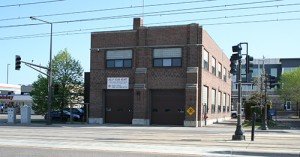By JAN MCCLURE
Changes in the works to capital budget process
Area residents and district councils that routinely submit projects for the city’s Long-Range Capital Improvement Budget (CIB) will see changes in 2017. The St. Paul City Council voted Sept. 28 to launch a study of capital budget changes.
With large projects looming and a slew of capital maintenance needs, the City Council and the Long-Range CIB Committee will be looking at process changes. That, in turn, means there won’t be the extensive project submission and review process next year, to determine what is and is not funded in 2018-2019.
That is likely to disappoint district councils, booster clubs and other groups that had already started work on projects to be submitted in January 2017. But City Council President Russ Stark and Deputy Mayor Kristin Beckmann said the proposal is to fund fewer needs in 2018-2019, giving time for city staff, the CIB Committee, district councils and citizens to look at the CIB process and make changes in time for the 2020-2021 funding round. That process starts in 2019.
 The two big projects looming are Fire Station 20 replacement in West Midway and Scheffer Recreation Center in Frogtown. The city also has millions of dollars in unmet repair needs at area parks, recreation centers, libraries and other facilities.
The two big projects looming are Fire Station 20 replacement in West Midway and Scheffer Recreation Center in Frogtown. The city also has millions of dollars in unmet repair needs at area parks, recreation centers, libraries and other facilities.
Planning and design funds for Fire Station 20, 2167 University Ave, were recommended for $1 million. The two-story, double-bay station was built in 1921. Station access was affected when Green Line light rail was built. Vehicles have to cross the light tracks to get out to calls, and rigs have to back in when they return. Fire Chief Tim Butler said cost estimates to build a new fire station are at $7 million. But the city is looking at a number of options to replace Station 20. One idea is to build on land owned by the WestRock (formerly Rock-Tenn) paper recycling company nearby. Another idea is to discuss a joint facility with the Minneapolis Fire Department.
Saint Paws wins approval
Saint Paws’ quest to continue operating a dog daycare and overnight boarding facility won unanimous St. Paul Planning Commission approval Sept. 30. The commission placed eight operating conditions on the business, including the use of an indoor dog relief area.
Saint Paws is at 1921 University Ave. The Planning Commission was asked to grant the business a determination of similar use status. The Commission had to determine whether indoor dog daycare and overnight boarding is similar to other uses allowed in a traditional neighborhood zoning district.
At issue with Saint Paws was where the dogs relieve themselves. Saint Paws has been walking its dogs in the surrounding neighborhood and using nearby Iris Park as a relief spot. A city Department of Planning and Economic Development (PED) staff report pointed out that such use “has the potential for significant negative impacts on the maintenance and appearance of the park above and beyond the impacts typically found with other (traditional neighborhoods-zoned) uses.” Other than the Iris Park issue, the business would meet all other conditions for a determination of similar use.
City planning staff recommended denial of the request in August, but after commissioners had said a more thorough look at history is needed, the issue was laid over.
Property owner Thomas Dunn and his daughter Susan Dunn, who operates the business, asked the Zoning Committee to recommend approval. They agreed to the conditions proposed. The Dunns renovated the building and opened the business not knowing they needed a license to open a dog daycare. The business came to city officials’ attention in May after a complaint. It had opened in February.
Saint Paws has support from a number of area businesses and Iris Park residents. But the St. Paul Department of Parks and Recreation raised objections to using Iris Park as a dog relief area. Dogs still can be walked in the park and surrounding neighborhood. Some neighbors have said the presence of dogs makes them feel safer.
The only person objecting Sept. 22 was the owner of the city’s three Dog Days businesses. She asked that all similar businesses be treated consistently and fairly.
Health care homes studied
The notion of health care dwellings will be explored by St. Paul City officials in the weeks ahead. The City Council on Sept. 28 approved measures related to a 2016 state law. No one appeared at a Sept. 21 public hearing to speak on the issue.
The Minnesota Legislature in May approved regulations allowing cities to permit temporary dwellings for the purpose of providing health care to a family member. Under the regulations, a family could house a relative in a recreational vehicle, small trailer home or similar facility on their home property. Possible structures could be as basic as a trailer home designed for disability access or as elaborate as a small house that could be placed in a driveway or backyard.
The intent is for the dwellings to meet a short-term need, to help families provide care for their loved ones. The state law has provisions to ensure that the temporary dwellings don’t become permanent and that they aren’t used to simply create extra housing. For example, the housing would be for family members. The family member would need assistance with two or more daily activities due to their mental or physical health.
A conditional use permit would be required for the dwellings. State law allows cities or counties to opt out of allowing the dwellings. The St. Paul City Council imposed a moratorium on such temporary dwellings until the St. Paul Planning Commission completes a study of the pros and cons of such dwellings.
Comments
No comments on this item Please log in to comment by clicking here